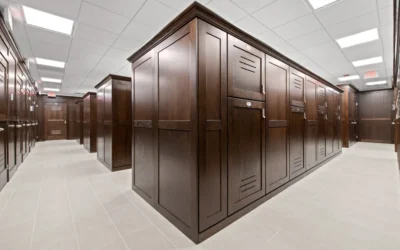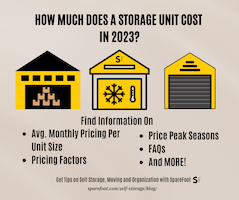Lenders are pulling back in response to the unprecedented uncertainty posed by the COVID-19 pandemic, but select self-storage operators are still able to secure financing.
“A significant number of lenders have moved to the sidelines,” said Jim Davies, a principal of self-storage capital advisor firm Talonvest Capital.
Talonvest brokers loans for storage operators primarily from banks, insurance companies and debt funds.
“I’m guessing that about 80 percent of the lenders who actively compete for our storage loans have decided to at least ‘pause’ for a couple of weeks,” said Davies.
CMBS lenders in particular have completely seized up when it comes to issuing new loans.
Still, Talonvest is continuing to source loans for borrowers. On March 30th, the firm closed on a portfolio of non-recourse bridge loans for a storage operator with properties in four states. They closed a refinance bridge loan for an operator in the Northwest on the same day, and the previous week they closed a non-recourse construction loan in Arizona.
“Those closings are telling in that there is still activity happening,” said Tom Sherlock, also a principal at Talonvest.
Sherlock added that they are in the midst of negotiating an application with a life insurance company for a $35 million bridge loan.
The keyword is ‘selectivity’
While some loans are still getting approved in the age of coronavirus, the selection criteria and the terms are not as favorable as they were a month or two ago.
“The ones that are lending are wanting lower loan to value and lower loan to cost. The leverage they are willing to do is down, and the pricing is up,” Davies said.
The insurance companies Talonvest works with had been lending at the low to mid 3 percent range, now Davies said floor rates are 4 percent and up.
As for who can get loans, lenders are tightening their standards.
“The keyword is ‘selectivity,” said Sherlock. “In a risk adverse world, the lenders who are providing capital are being very selective in terms of borrower’s experience, financial stability, and the quality of the market.”
Dramatic changes to the lending landscape
The BSC Group, a Chicago-based capital advisor serving the self-storage industry, recently sent a market report to clients echoing much of the same observations.
“The lending landscape has changed dramatically in just a few short weeks. Generally speaking, this can be characterized as a shift from aggressive loan origination to conservation, asset management, and preservation of capital,” the BSC Group said.
The memo noted that that the few active lenders in the space are overwhelmed with requests and are able to “cherry pick” the best deals. However, even those deals are expected to take longer as current conditions make it difficult to get people physically on site to do the work needed to consummate transactions. Banks are also inundated with borrowers requesting forbearances or loan modifications, further delaying the issuance of new loans.
Risks ahead
Shawn Hill, a principal of the BSC Group, said that he feels the self-storage industry is relatively well-positioned to weather the current crisis, however he added, that is hard to say at this point how deep or prolonged the economic damage will be.
One of the biggest risks Hill sees ahead for the industry is for developers with lease up properties who rely on bridge loans.
“While the lending markets are not damaged like they were in 2008, one area that will definitely be affected in the short term is the bridge market where a lot of the lenders in the space work off leveraged capital,” said Hill, “In times like these, that capital tends to dry up and those are the same lenders that have been providing the extension to lease up properties.”
Hill said that if bridge capital becomes more scarce, lease up deals with loan maturities in the near future might find themselves in a tight spot.
As for recent activity, Hill said his firm has a few deals currently in process. Their last closing was a $4.4 million CMBS loan that closed just before the markets shifted.
Uncertainty abounds
With the economic impacts of stay at home orders change by the day, opportunities for borrowers may only dwindle in the coming weeks.
“Every day we talk to lenders who are deciding whether they are going to sit on the sidelines for another 30 to 60 days,” said Davies.
On the flip side, the change in market conditions could create an opportunity for some, Hill notes.
“One primary opportunity that may come out of this could be for well-capitalized buyers that have been looking to put money to work, but have been having a hard time finding deals,” said Hill.







